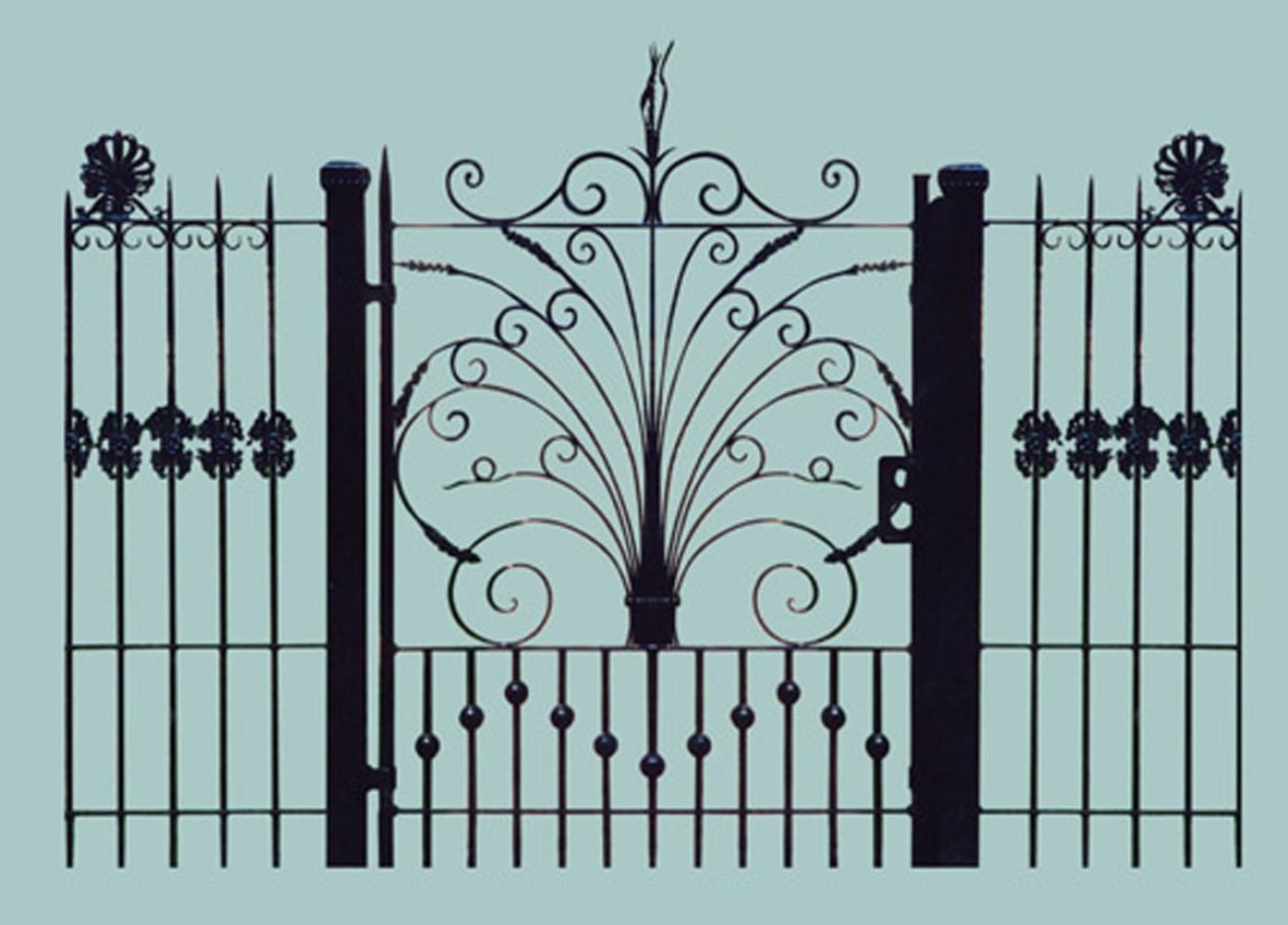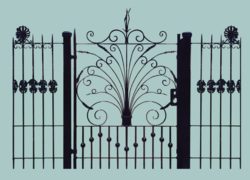Darryl Reeves
Darryl Reeves is a master blacksmith who hand-forges decorative and functional ironwork for many of New Orleans' historic homes and public buildings.

Courtesy of Von Reeves.
This "Hand Forged Iron Gate" measuring 4 x 6 feet, was made in 2000 in Crawley, Louisiana, by Darryl Reeves.
New Orleans native Darryl Reeves is a master blacksmith who hand forges decorative and functional ironwork for many of the city’s historic homes and public buildings. Unlike most contemporary blacksmiths who cast their creations, Reeves meticulously forges each element individually, in the tradition of New Orleans’s eighteenth- and nineteenth-century African-American ironworkers.
Reeves traces his interest in blacksmithing to his maternal grandfather, who worked on St. Emma Plantation near Donaldsonville, Louisiana. Dating to the 1840s, St. Emma was one of the state’s largest sugar plantations and, like many of the cane-rich properties along River Road, housed an on-site foundry for building and repairing farm equipment. Even into the early twentieth century, blacksmithing remained central to plantation operations, when freed African Americans, rather than slaves, farmed much of the land.
Just out of high school, Reeves began welding intermittently, but not until the early 1980s did he consider a career in the metal arts. The decision came while he was working at his parents’ awning company and meeting customers who wanted old-style hardware, particularly strap hinges and latches, for their eighteenth- and nineteenth-century homes in the French Quarter. Apprenticing under master blacksmith and farrier William “Buddy” Leonard, Reeves supplemented his hands-on training by studying books borrowed from the library, gradually developing styles and techniques of his own.
In 1990, Reeves and his wife Lolette opened Andrew’s Welding and Blacksmith Shop, which Reeves named for his father. Located in New Orleans’s Seventh Ward, the business incurred significant flooding and damage following Hurricane Katrina, forcing Reeves to relocate temporarily to Donaldsonville, where he still has family. There he opened a shop, allowing him to continue his blacksmithing operation, and he began making plans for rebuilding his New Orleans space. He returned to the city in 2008.
While Reeves is recognized for his modern creations in steel and brass, including furniture and staircase railings, much of his work focuses on the restoration of antique ironwork. His most notable public commission can be found on Jackson Square in the French Quarter: the ornate gates of the Presbytere, thought by some scholars to be the original creation of slave artisans. Reeves restored the ironwork while also fabricating a new fence for its sister building, the Cabildo. He also rebuilt the Chalmette National Cemetery’s main gate, dating to 1872, by disassembling and individually reconstructing its individual components. “When I’m doing a restored job, I make it a point to use every bit of the original parts to the piece as possible.” Reeves says. “So working on something old gives me a personal connection to it.”
Reeves uses vintage equipment, including a century-old fire pot and hand blower, as well as smaller tools he makes himself. Rhythmically pounding hot, malleable iron with a large, blunt hammer called a maul, he fashions leaves, tendrils, and other delicate forms. “Doing it by (casting), you don’t have the same artistic element,” Reeves says. This commitment to hand-wrought ironwork places Reeves in a long and esteemed line of African-American artisans whose antique fences, gates, balcony railings, and window grilles grace many of New Orleans’s historic structures. Harlem Renaissance scholar Alain Locke observed in Negro Art: Past and Present, “The most authentic tracing of any considerable school of master craftsmen has been in connection with the famous Creole and Negro blacksmiths of New Orleans.” A twenty-first century craftsman, Darryl Reeves continues this tradition by hand-forging contemporary works of art in an array of metals as well as restoring his predecessors’ original creations in iron.
